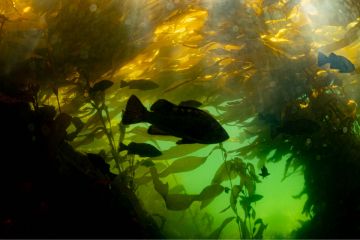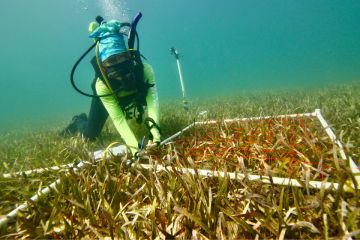What is ocean noise and why is it important?
- Dorothy Eggenberger

Sound is one of the fastest underwater communication channels. Marine animals use sound to navigate, find food, avoid predators, find mating partners and socialize.
Human-made underwater noise is filling those channels with sound from commercial or recreation vessels, in- or near-water construction like dredging or pile driving, seismic surveying, and active sonar.
New research now suggests human-made ocean noise is more harmful to marine life than we realized. In a study published in the journal Science, a global research team including University of Victoria biologist Francis Juanes set out to document the impact of noise on marine animals and on marine ecosystems around the world.
Researchers assessed the evidence contained in more than 10,000 papers to consolidate compelling evidence that human-made noise impacts marine life from invertebrates to whales, affecting everything from behaviour to physiology. It sheds light on the global prevalence and intensity of the impacts of ocean noise, the researchers say.
Since the Industrial Revolution, humans have made the planet, the oceans in particular, noisier through fishing, shipping, infrastructure development and more, while also silencing the sounds from marine animals that once dominated the pristine ocean.
“We were surprised by how pervasive the effects of anthropogenic noise were geographically and taxonomically affecting all oceans—from the deep-sea to the Arctic, and most animals from invertebrates to marine mammals,” says Juanes, who is also the Liber Ero Chair for Fisheries Research and the only co-author from a Canadian institution. The global research team was led by Carlos M. Duarte, distinguished professor at King Abdullah University of Science and Technology.
Unlike other forms of human pollution—like emissions of chemical pollutants and greenhouse gases—the benefits of reducing human-made ocean noise are almost immediate. The study points to the rapid response of marine animals to the human lockdown under COVID-19 as evidence for the potential rapid recovery from noise pollution.
We hope that our paper will convince planners and policymakers that underwater noise is an important anthropogenic stressor which needs to be incorporated into future ocean planning and policy frameworks.
—Francis Juanes, UVic biologist
Photos
In this story
Keywords: research, oceans, COVID, biology, administrative
People: Francis Juanes





